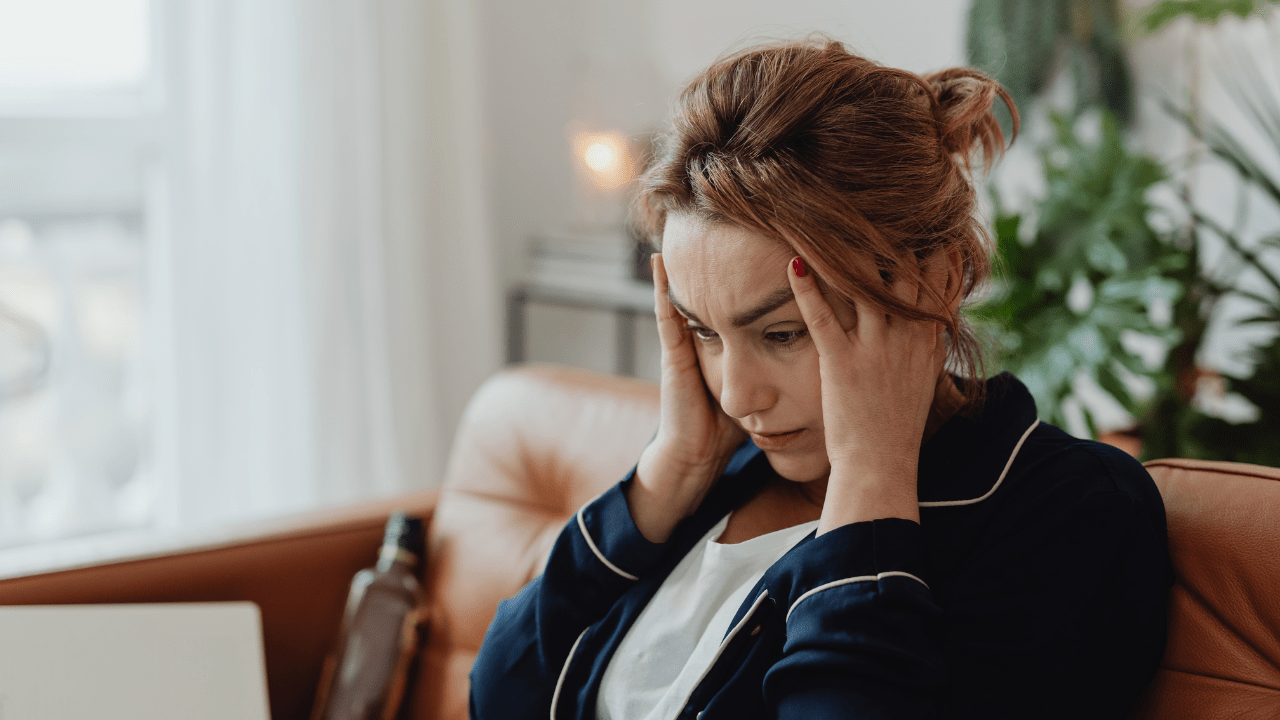Did you know that there are alternative methods to relieve anxiety that do not use pharmaceuticals? Numerous individuals encounter emotions of anxiety, characterized by symptoms such as unease, muscle tension, and, in severe instances, palpitations or rapid heartbeat.
Here are a few strategies you might employ to enhance your mood
- Exercise: Participating in physical activity is a way to reduce stress.
- Alleviate stress: Engaging in practices such as meditation and deep breathing can assist in achieving a state of relaxation and unwinding.
- Prior to utilizing cannabidiol (CBD) oil or supplements, it is advisable to consult with a medical professional, since while they may be advantageous for certain individuals, it is important to seek professional guidance.
- Interacting with animals: The presence of a pet can contribute to a sense of tranquility and provide a welcome diversion from personal concerns.
Other medical conditions, such as thyroid disease, can potentially be responsible for anxiety. Hence, it is advisable to consult a medical professional to ensure that you are receiving the appropriate medical care. Alleviate your stress and worry by utilizing these natural cures.
This post focuses on herbal supplements that can alleviate symptoms of anxiety and stress
How do anxiety herbs help?
The human body can exhibit diverse responses to different herbal substances. For instance, ashwagandha possesses the capacity to decrease the concentration of cortisol, a stress-related hormone, in the bloodstream. Individuals with consistently elevated cortisol levels are more likely to experience anxiety.
Herbs with neuromodulators properties can induce relaxation by altering the brain’s message processing. An example of this is the potential anxiolytic and sedative effects of valerian root extracts, which target certain brain receptors. Valerian root is renowned for its efficacy in alleviating insomnia and other sleep disturbances.
Chamomile
The chamomile flower bears a striking resemblance to the daisy in terms of its look. There are two types of chamomile: Roman chamomile and German chamomile. Chamomile, in its different forms, such as tea, extract, tablets, or skin lotion, is known to provide relief from stress and anxiety for many individuals.
In a 2016 pilot study, it was observed that 93 patients diagnosed with anxiety disorder did not experience any improvement after consuming a daily dosage of 1,500 mg of chamomile for a duration of 12 weeks. While a portion of the group continued for an additional 26 weeks, another portion started taking a placebo. Individuals who persisted in consuming chamomile did not exhibit an increased probability of anxiety relapse. However, in instances where anxiety did reoccur, its intensity was diminished.
Chamomile allergies have been reported infrequently. Specific drugs, such as anticoagulants or immunosuppressive treatments, can also have adverse interactions with it. Prior to consuming chamomile in any form, such as teas or supplements, it is advisable to seek guidance from your physician, particularly if you are currently on a prescription.
Lavender
The lavender plant is a member of the mint family. It provides significant assistance to numerous individuals in achieving relaxation and alleviating their anxiety.
Lavender possesses several applications, such as being utilized in beverages and as an essential oil.
Lavender essential oil (LEO) contains terpenes. In a 2017 review, two substances, namely linalool and linalyl acetate, were suggested as potential sedatives for brain chemical receptors.
Based on the review, LEO has the potential to offer momentary alleviation of anxiety. Nevertheless, further investigation is required to ascertain the safety of prolonged usage.
Cannabidiol
sometimes known as CBD, is a constituent of the cannabis plant. A 2019 study found that it can aid in inducing relaxation in the central nervous system.
The study’s authors suggest that CBD may be beneficial for individuals experiencing anxiety. Further investigation is required to validate this.
CBD is available in several forms, including pills, liquid extracts, vape juice, and lotions, although it lacks FDA approval
Kava Kava
The kava plant, known by various other names, is derived from plants indigenous to the Pacific Islands. The official scientific name of Piper methysticum is Piper methysticum.
Kava is renowned for its efficacy in alleviating symptoms of anxiety and tension. However, it has been demonstrated that products containing kava can lead to substantial liver damage in specific cases. Therefore, it is advisable to consult a healthcare practitioner prior to using Kava.
Passionflower
Passionflower, often known as Passiflora, encompasses over 550 unique species. Some research suggests that one particular kind, P. incarnata, may help reduce anxiety and restlessness.
You can take P. incarnata as tablets or liquid tinctures.
Ashwagandha
Shatavari 6 is an herb called Ashwagandha, scientifically known as Withania somnifera. It belongs to a group of plants called “adaptogens.”
Adaptogens have an impact on the stress response systems and hormones in the body. Ashwagandha has been widely utilized in Ayurveda, the ancient Indian medical system, for numerous years.
In a pilot study conducted in 2019, a total of 58 individuals who reported experiencing stress were administered different doses of ashwagandha extract or a placebo over a period of eight weeks. A study demonstrated that individuals who consumed ashwagandha experienced reduced levels of the stress hormone cortisol. Furthermore, these individuals also reported improved sleep quality. The group of individuals who consumed 600 mg of ashwagandha experienced a notable and measurable reduction in their stress levels, which was statistically significant.
In a further experiment carried out during the same year, a group of sixty individuals experiencing moderate anxiety were randomly assigned to receive either ashwagandha or a placebo for a period of sixty days. The Ashwagandha group exhibited considerably reduced anxiety levels.
Ashwagandha is available in the form of either a capsule or a liquid tincture.
Valerian
Valerian, scientifically known as Valeriana officinalis, is an indigenous herb found in Asia and Europe. The root has a lengthy historical background of being utilized as a treatment for sleeplessness, uneasiness, and despondency.
There have been limited, rigorous studies undertaken on valerian thus far. According to the National Center for Complementary and Integrative Health (NCCIH), there is not enough evidence to support the claim that valerian effectively reduces symptoms of anxiety or depression.
While valerian is generally considered safe, there is a lack of research about its long-term effects and potential risks for pregnant women, nursing mothers, and children under the age of three.
Galphimia Glauca
The scientific name for a Mexican plant is Galphimia glauca. Anxieties have historically been relieved through its utilization.
Based on a 2018 evaluation, G. glauca seems to be a potent treatment for anxiety. Nevertheless, the limited availability of the plant has hindered its extensive utilization by the medical sector.
Summary
For millennia, herbs have been utilized to address a range of health conditions, including anxiety. Scientific research has indicated that certain plants have demonstrated potential for reducing symptoms of anxiety.
Herbal medicines, similar to medications, might have adverse effects on specific individuals. Moreover, they may necessitate a longer period to commence operating. Individuals should thoroughly evaluate these factors before deciding to pursue a herbal treatment.
There have been instances of significant medication interactions with specific plants. Individuals who are on medication should seek guidance from their physician prior to trying any alternative therapies.



